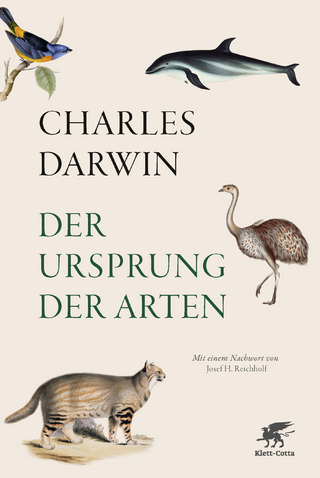
Measuring the Evolution Controversy
A Numerical Analysis of Acceptance of Evolution at America's Colleges and Universities
Seiten
2016
|
Unabridged edition
Cambridge Scholars Publishing (Verlag)
978-1-4438-9042-7 (ISBN)
Cambridge Scholars Publishing (Verlag)
978-1-4438-9042-7 (ISBN)
The reality of evolution is indisputable and, based on current scientific evidence, all people in the world should accept it as fact. Yet, only 41% of adults worldwide embrace evolution, and they do it under the premise that a deity created humans. One in every three people is a strict creationist who believes in religious scriptures concerning the origin of our universe and of humans, and explicitly rejects that Homo sapiens is an ape when, in fact, science informs us that humans’ closest relatives are chimpanzees, bonobos, gorillas and orangutans. Indeed, we are all apes.Why do people not accept evolution? In Measuring the Evolution Controversy, Guillermo Paz-y-Miño-C and Avelina Espinosa postulate that the debate over evolution-and-science versus creationism is inherent in the incompatibility between scientific rationalism/empiricism and the belief in supernatural causation (religion and faith). Belief disrupts, distorts, delays or stops the comprehension and acceptance of scientific evidence. The authors refer to this proposal as the incompatibility hypothesis (IH), the conceptual foundation of this book.Paz-y-Miño-C and Espinosa explain that the evolution controversy is not only measurable descriptively, but also testable as in an ordinary field of science. To accomplish this, they examine three predictions of IH. First, chronological-conflict-and-accommodation (i.e. the historical re-emergence of antagonism between evolution and religion when advances in science continue to threaten the belief in supernatural causation; in such situations, creationists’ rejection of and subsequent partial acceptance of the new scientific discoveries are expected). Second, change in evolution’s acceptance as function of educational attainment (i.e. the positive association between acceptance of evolution and level of education). Third, change in evolution’s acceptance as function of religiosity (i.e. the negative association between acceptance of evolution and level of religious beliefs). By relying on an ample assessment of the attitudes towards evolution by highly educated audiences (i.e. research faculty, educators of prospective teachers, and college students in the United States) the authors characterise their understanding of science and evolution, personal religious convictions, and political ideology.The authors make recommendations for improving science and evolution literacy, as well as evolution’s acceptance, and conclude by forecasting a probable global socio-cultural landscape in which acceptance of science and evolution will take place.
Guillermo Paz-y-Miño-C is co-Director of New England Science Public. An evolutionary biologist, he is the author of 150 publications, including Evolution Stands Faith Up: Reflections on Evolutions’ Wars. He is the recipient of a Citation for Outstanding Performance (2007) by the Commonwealth of Massachusetts (innovation in science education).Avelina Espinosa is a Professor of Biology and Coordinator of Biotechnology Programs at Roger Williams University. A molecular microbiologist, she has authored 40 publications and has received the Young Investigator Award (2001) from the American Society of Tropical Medicine and Hygiene (research on metabolism in amoebozoans).
| Erscheinungsdatum | 10.05.2016 |
|---|---|
| Verlagsort | Newcastle upon Tyne |
| Sprache | englisch |
| Maße | 148 x 212 mm |
| Themenwelt | Schulbuch / Wörterbuch |
| Naturwissenschaften ► Biologie ► Evolution | |
| ISBN-10 | 1-4438-9042-1 / 1443890421 |
| ISBN-13 | 978-1-4438-9042-7 / 9781443890427 |
| Zustand | Neuware |
| Haben Sie eine Frage zum Produkt? |
Mehr entdecken
aus dem Bereich
aus dem Bereich
Komplette Neuübersetzung. Mit einem Nachwort von Josef H. Reichholf.
Buch | Hardcover (2018)
Klett-Cotta (Verlag)
48,00 €


